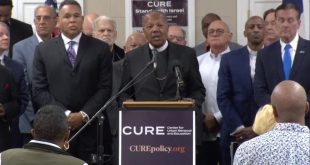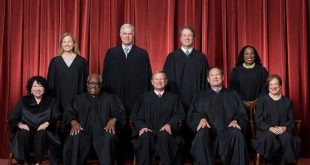West Virginia lawmakers passed the Save Women’s Sports bill in 2021, and Gov. Jim Justice signed it into law. The measure bans boys from participating on sports teams designated for girls in middle and high schools.
An 11-year-old boy, banned from joining girls’ track and cross-country teams, sued the West Virginia State Board of Education and others for discrimination. The boy claimed that the state violated the Equal Protection Clause of the U.S. Constitution and Title IX, which bars discrimination based on sex in education. The state intervened in the lawsuit.
Opponents of such bans argue that Title IX’s ban on discrimination based on sex includes “gender identity.” Congress has passed no law redefining the word “sex” in the federal code.
A federal court agreed and upheld West Virginia’s law. The issue was whether the state legislature’s definition of “women” and “girl” in this context is constitutionally permissible.
“The legislature’s definition of ‘girl’ as being based on ‘biological sex’ is substantially related to the important government interest of providing equal athletic opportunities for females,” the judge wrote (PDF). [emphasis added]
While it’s disheartening that the judge referred to the boy as “she” and “her” and said that “transgenderism” is “natural and not a choice,” the decision was the correct one. The court also noted the biological differences between the sexes, which everyone knows. Testosterone gives males an unfair advantage when competing physically against women. Men and boys generally are stronger, bigger, taller, and faster than girls and women.
Fairness in sports requires that women compete with people more equally matched — other women.
“Whether a person has male or female sex chromosomes determines many of the physical characteristics relevant to athletic performance,” the judge wrote. “Those with male chromosomes, regardless of their gender identity, naturally undergo male puberty, resulting in an increase in testosterone in the body.”
The judge referred to a female athlete who intervened in the lawsuit as “cisgender” — a nonsensical word.
Lainey Armistead, the “cisgender” woman and a former West Virginia State University soccer player, said she believes that “protecting fairness in women’s sports is a women’s rights issue.”
Where are the feminists?
“This isn’t just about fair play for me: It’s about protecting fairness and safety for female athletes across West Virginia” Armistead said. “It’s about ensuring that future generations of female athletes are not discriminated against but have access to the same equal athletic opportunities that shaped my life. Being an athlete in college has made me even more passionate about the sport that I play. I want fairness, equality, and safety in sports. And I want to ensure those standards are protected for other girls, too.”
Photo credit: Alliance Defending Freedom
Do you like this post? Sign up for more!
 CURE News and Clergy Blog News and Commentary for Christians
CURE News and Clergy Blog News and Commentary for Christians



